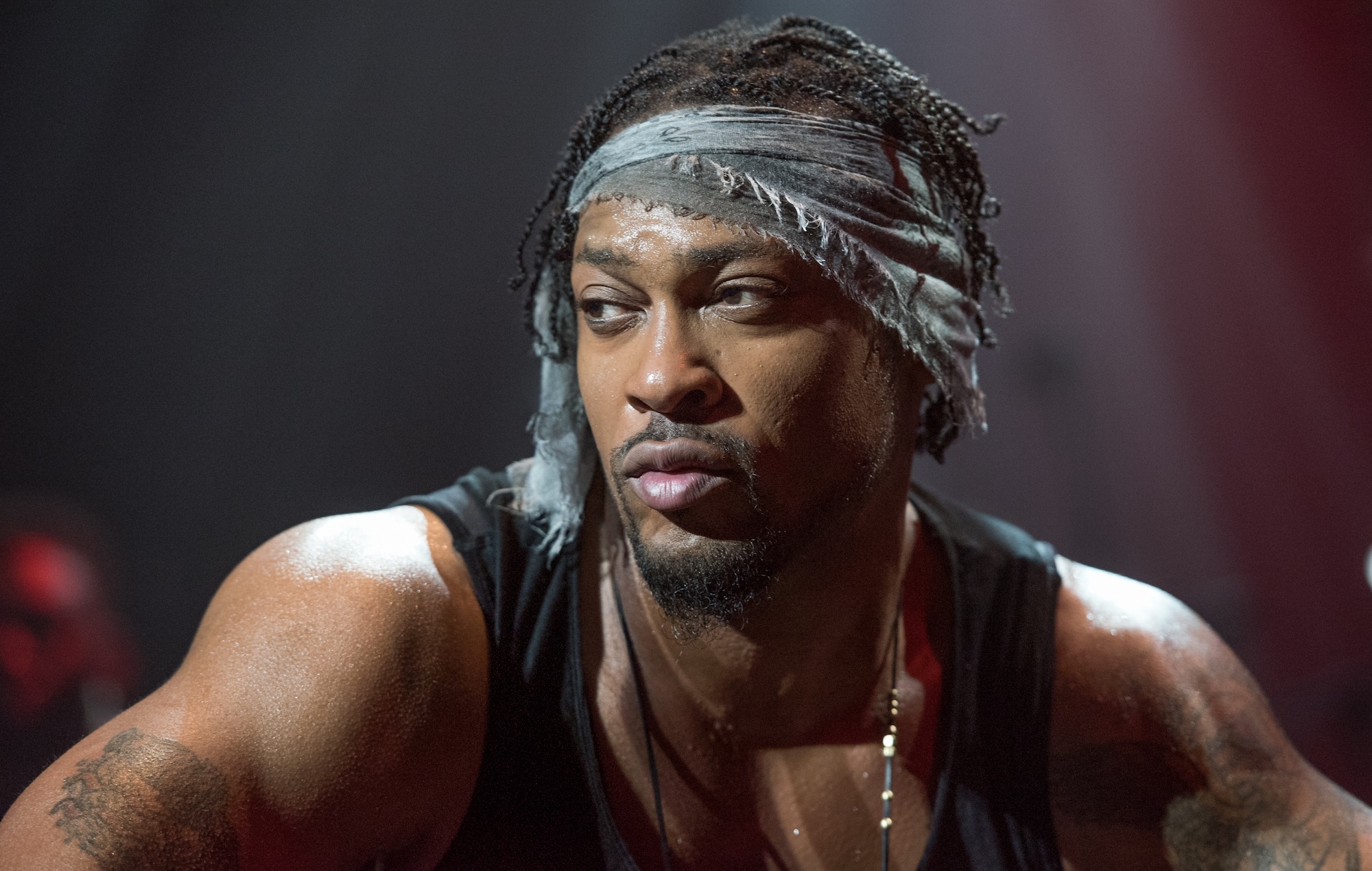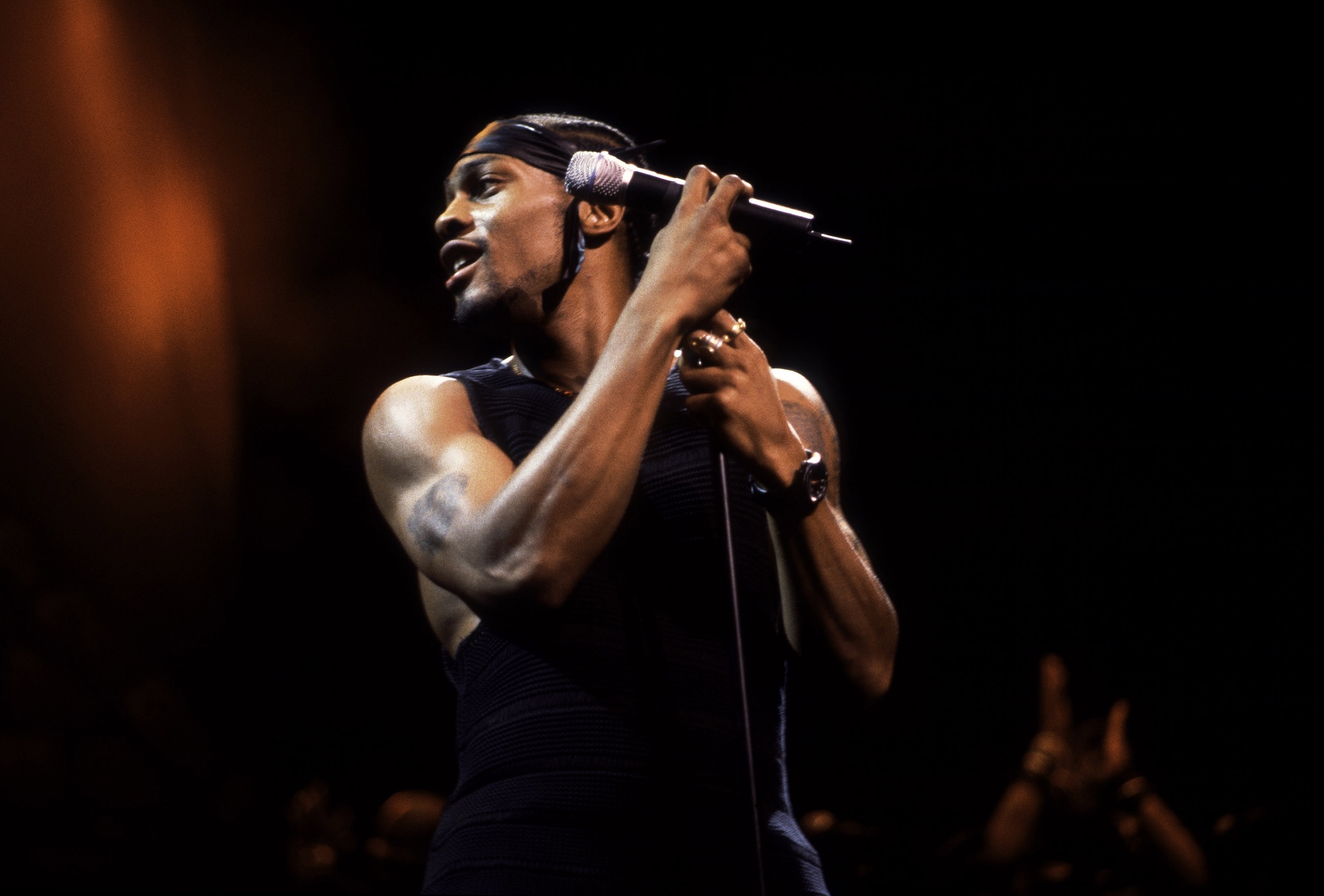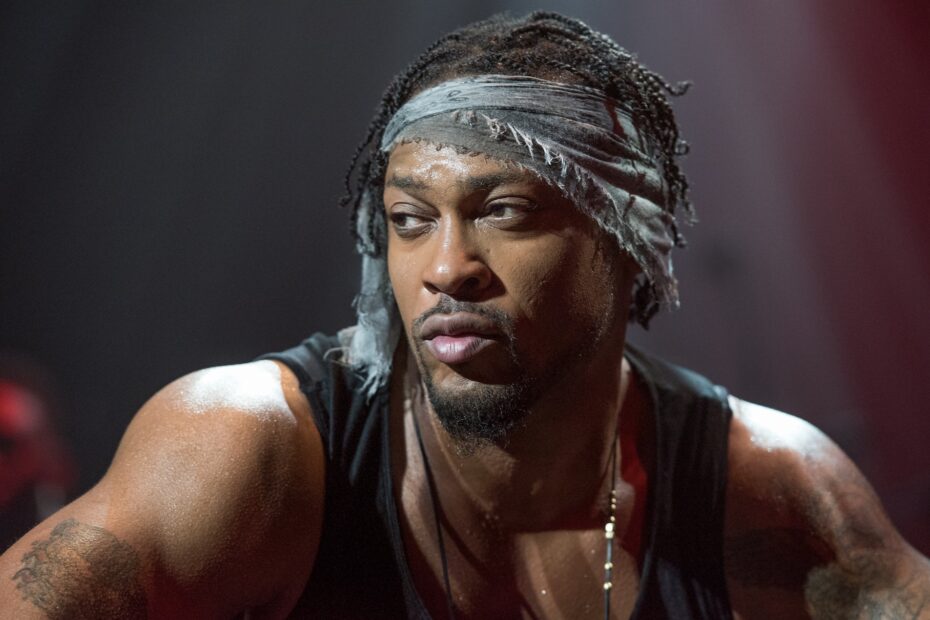
Many of music’s most visionary and uncompromising artists end up working in shadow; disillusioned with the systems of selling and the mundanity of the mainstream, disciples instead to the evolution of the art. Among that revered tribe – Kate Bush, David Bowie, Björk, Joni Mitchell, his creative hero Prince – sits neo-soul originator D’Angelo, who died yesterday (October 14) aged 51 following a long battle against pancreatic cancer.
His few albums – ‘Brown Sugar’ (1995), ‘Voodoo’ (2000) and ‘Black Messiah’ (2014) – are each held up as ground-breaking, scene-reviving masterpieces of modern soul, illuminating the personal and political struggles of our times. Yet the man who made them – often at great length, in isolation and intent on becoming a pure conduit from music’s past to its future – will forever remain an enigma; soul’s mist-shrouded oracle, darkened far too soon.
Born Michael Eugene Archer in Richmond, Virginia, in 1974, into a Pentecostal family which provided him a crucial grounding in jazz and gospel music, D’Angelo’s musical talent developed young. He was playing the house piano from the age of three and producing and performing in a hip-hop troupe I.D.U. (Intelligent, Deadly But Unique) in his teens.
Demos by the group drew the attention of the Midnight Songs LLC publishing company and EMI Music in 1991, and D’Angelo dropped out of school aged 18 to move to New York City and follow a music career, collaborating with writers including Angie Stone and A Tribe Called Quest’s Ali Shaheen Muhammad. His early group Precise made waves during talent nights at Harlem’s Apollo Theatre, earning him enough money to buy rudimentary recording equipment, and he signed to EMI in 1993.

In 1994, ‘U Will Know’, co-written with his brother Luther for the R&B supergroup Black Men United (featuring Usher, R Kelly, Boyz II Men and others), gave him his first major hit, raising his profile significantly within the R&B world, but it was his debut album ‘Brown Sugar’ which made his legend in the US.
With D’Angelo singing all vocals and playing most of the instruments (an approach inspired by Prince), the album was an innovative fusion of classic soul, funk, Native Tongues hip-hop and contemporary digital techniques which immediately re-invigorated 1990s R&B. A slow-burner sales wise, the record would eventually shift somewhere between 1.5million and 2million copies, and is now considered the launchpad and defining text of neo-soul, a term coined in its wake by D’Angelo’s manager Kedar Massenburg.
Following the success of the record, D’Angelo became jaded with the music industry and suffered several years of writer’s block, retreating from the spotlight for much of the late ’90s, studying the work of earlier soul innovators like Sly Stone and Al Green while largely releasing cover versions of Prince or Marvin Gaye tracks for movie soundtracks alongside his first live album ‘Live at The Jazz Café’ (1998).
Prompted by a fresh creative surge in the wake of the birth of his son Michael, his return with 2000’s widely-acclaimed ‘Voodoo’ was another culture-quake. Recorded – often live and first-take – with the Soulqarians collective (including Erykah Badu, J Dilla, Mos Def, Questlove and Q-Tip) and featuring high-profile rappers such as Method Man & Redman, the record was introspective, philosophical and experimentally groove-based, incorporating vintage vibes, ambient tones and improvisational jazz structures into D’Angelo’s already unique sound. “My inspiration was just to go farther,” he said. “To get to that next level. To push it even further. To work against the floss and the grain and to get even deeper into the sound that I’m hearing.”
An instant hit – topping the US charts in week one – ‘Voodoo’ was hailed as a neo-soul masterpiece, but once more D’Angelo slipped from the public eye, amid growing personal issues, a discomfort with his sex-symbol image (particularly in the flesh-heavy video for ‘Untitled (How Does It Feel)’) and addiction.
His early ’00s alcoholism saw personal relationships fall apart and his label cut off funding for a third album, and a stint in rehab following arrests for drug possession and DUI in 2005. Entirely solo work produced unfinished results and, though D’Angelo began making guest appearances on records by Snoop Dogg, Common and Q-Tip in the late ’00s and toured again in 2012, playing a few new songs, it wasn’t until 2014 that a third album would emerge, 14 years after ‘Voodoo’.
Understandably, ‘Black Messiah’ was greeted as one of the great comebacks of the 2010s, its expansive and unpredictable avant-soul style likened to Funkadelic, Captain Beefheart and Sly Stone’s ‘There’s A Riot Goin’ On’. But though D’Angelo promised a follow-up accompanying album as early as 2015, he would once more retreat for the rest of his life.
He made rare appearances onstage – most notably at a D’Angelo Vs Friends solo show at the Apollo in 2021 – and released just two further tracks: ‘Unshaken’ for the soundtrack of his beloved video series sequel Red Dead Redemption 2 and ‘I Want You Forever’ (with Jay-Z and Jeymes Samuel) for the soundtrack to 2023 Biblical comedy The Book Of Clarence. Hence, his tragic death further enshrouds his mystery and elevates his myth: whatever strange voodoo remains is for the vault to cast up.
The post D’Angelo, 1974-2025: neo-soul trailblazer who made magic from the shadows appeared first on NME.
